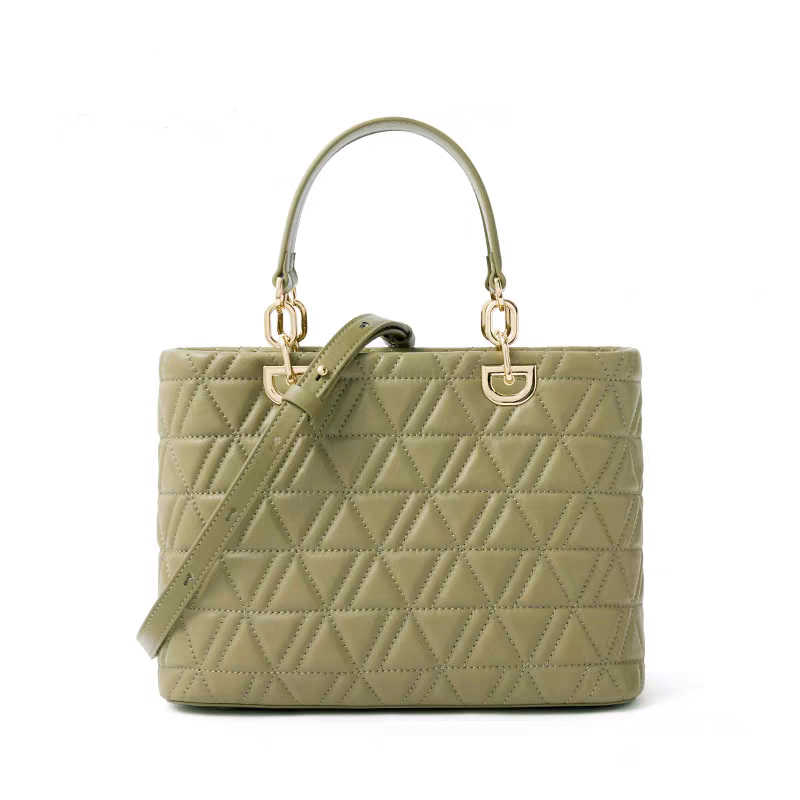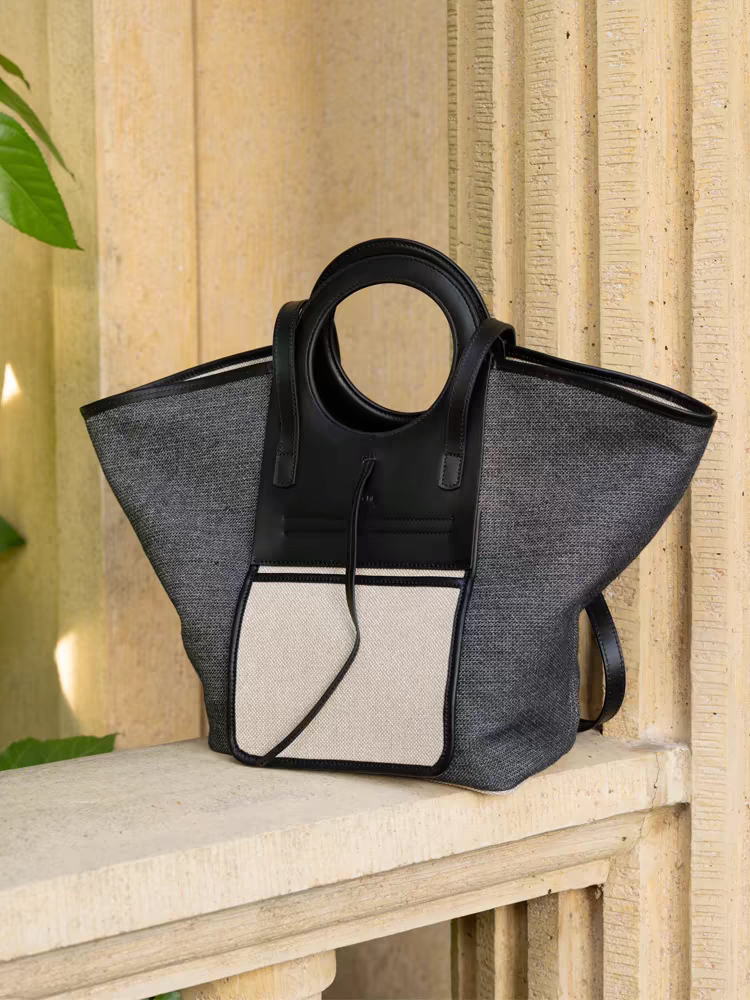 ADDRESS:No. 6 Ouhua 1st Street, Europe Industrial Park,Shiling Town, Huadu District, Guangzhou City 510850 CHINA
ADDRESS:No. 6 Ouhua 1st Street, Europe Industrial Park,Shiling Town, Huadu District, Guangzhou City 510850 CHINA
 +86 186 8204 7592
+86 186 8204 7592
 xr-angelia@xrbags.com
xr-angelia@xrbags.com




Guangzhou Xin Rui Leather Product Co., Ltd.
 ADDRESS:No. 6 Ouhua 1st Street, Europe Industrial Park,Shiling Town, Huadu District, Guangzhou City 510850 CHINA
ADDRESS:No. 6 Ouhua 1st Street, Europe Industrial Park,Shiling Town, Huadu District, Guangzhou City 510850 CHINA
 +86 186 8204 7592
+86 186 8204 7592
 xr-angelia@xrbags.com
xr-angelia@xrbags.com




The fashion industry is built on creativity, craftsmanship, and quality—and one of the most crucial sectors within it is handbag manufacturing. A handbag manufacturer is a company or entity that specializes in producing various types of handbags, from luxury designer pieces to mass-market products. These manufacturers are responsible for transforming raw materials like leather, fabric, and metal into finished goods that meet the demands of fashion houses, retailers, and consumers. In this article, we explore the roles and processes of a handbag manufacturer, and how companies like XinRui Leather are setting benchmarks in the industry. Additionally, we’ll take a look at some recent industry trends and news that are shaping the future of handbag manufacturing.
A handbag manufacturer is a company engaged in the production of handbags, purses, and other related accessories. These manufacturers often handle a range of activities, including material sourcing, design development, cutting, sewing, assembly, quality control, and packaging. The end products can vary widely in style, size, and purpose, ranging from casual tote bags to high-end clutches and professional briefcases.
Key Functions of a Handbag Manufacturer:
Design and Prototyping: Handbag manufacturers often collaborate with designers to create prototypes of new designs. This stage involves translating sketches into physical samples, selecting suitable materials, and making adjustments to ensure that the design is functional and aesthetically pleasing.
Material Sourcing: The quality of a handbag is heavily dependent on the materials used. Manufacturers source materials such as leather, textiles, zippers, and metal fittings from various suppliers. The choice of materials influences the durability, appearance, and price of the final product.
Cutting and Stitching: Once the materials are sourced, they are cut according to patterns and stitched together by skilled artisans or automated machines. This stage requires precision and attention to detail to ensure that each piece is assembled perfectly.
Finishing and Assembly: The finishing process involves adding the final touches, such as attaching hardware, straps, and lining. Assembly may also include the application of logos, tags, and embellishments to complete the look of the handbag.
Quality Control: Before a handbag is released to the market, it goes through rigorous quality checks. Manufacturers inspect the product for defects, ensuring that stitching, zippers, and overall construction meet high standards.
Packaging and Distribution: The final step involves packaging the handbags and preparing them for distribution. This stage includes labeling, boxing, and shipping the products to retailers, brands, or directly to consumers.

XinRui Leather is a prominent handbag manufacturer known for its commitment to quality, craftsmanship, and innovation. Specializing in leather goods, XinRui Leather has built a reputation for producing premium handbags that cater to both the luxury and mass-market segments. The company prides itself on using high-quality materials and employing skilled artisans to bring each design to life. XinRui’s expertise in leather crafting has made it a trusted partner for many global fashion brands looking to create handbags that combine style, durability, and functionality.
The handbag manufacturing industry has undergone significant changes in recent years, influenced by evolving consumer preferences, technological advancements, and sustainability concerns. Here are some of the latest industry trends and news:
Sustainability and Eco-Friendly Practices
The global shift towards sustainability has had a profound impact on handbag manufacturing. Consumers are increasingly demanding products that are ethically made and environmentally friendly. This trend has led to the rise of eco-friendly materials such as plant-based leathers made from pineapple fibers, cactus, and mushrooms. Manufacturers are also adopting more sustainable production methods, such as reducing water consumption and minimizing waste.
XinRui Leather has responded to this trend by incorporating sustainable materials and practices into its production process. The company has started to offer handbags made from eco-conscious materials and uses energy-efficient machinery to reduce its carbon footprint.
Smart Technology Integration
Technology is playing a bigger role in the handbag industry, with innovations such as smart handbags gaining traction. These bags often include features like built-in phone chargers, GPS trackers, and anti-theft systems. Such innovations add a layer of functionality that appeals to tech-savvy consumers.
Manufacturers like XinRui Leather are exploring ways to integrate these technologies into their products without compromising style and quality. This trend is expected to grow as more consumers look for products that combine fashion and functionality.
Customization and Personalization
Customization is becoming a significant trend in handbag manufacturing. Consumers are looking for unique pieces that reflect their personal style. Handbag manufacturers are responding by offering customization options, such as monogramming, choosing colors and materials, and even designing bespoke bags.
XinRui Leather has embraced this trend by providing customization services that allow customers to create personalized handbags. This approach not only enhances the customer experience but also adds value to the product, making it more desirable.
Impact of Digitalization
The COVID-19 pandemic accelerated digital transformation in many industries, including handbag manufacturing. Companies are leveraging digital tools for product design, virtual sampling, and even online sales. This shift has enabled manufacturers to streamline their operations, reduce costs, and reach a broader audience.
XinRui Leather has invested in digital technologies to enhance its design and production processes. By using 3D modeling and virtual prototyping, the company can bring new designs to market faster while maintaining high quality.

While the handbag industry is growing, it is not without challenges. One major issue is the fluctuation in raw material prices, particularly leather. Additionally, maintaining quality while meeting increased demand can be difficult, especially for manufacturers that cater to both luxury and mass-market brands. Labor costs and production timelines are other factors that impact profitability and efficiency.
To address these challenges, XinRui Leather has focused on optimizing its supply chain, investing in automation, and training its workforce to ensure that it remains competitive in a dynamic market.
Handbag manufacturers play a crucial role in bringing stylish and functional products to consumers. They are involved in every step of the production process, from design and material sourcing to quality control and distribution. Companies like XinRui Leather have set the standard in the industry by combining traditional craftsmanship with modern technology and sustainable practices. As the handbag market continues to evolve, staying ahead of trends and embracing innovation will be key for manufacturers to succeed. With its dedication to quality and commitment to sustainability, XinRui Leather is well-positioned to continue leading the way in handbag manufacturing.
